Monsteranto – Hatch One Today
Have you ever watched the movie I Am Legend with Will Smith? The story is about a “cure” for cancer that later resulted in radical long term effects that almost knocked out the human race as we know it today.
At first, the treatment completely cures a patient’s cancer. That sounds great doesn’t it? Not so great if horrible mutations developed after the fact.
I walked away from that movie with a sick feeling in my stomach, because it’s not that far fetched from what could become a reality.
Something I keep in mind is that although science is powerful and beneficial, Mother Nature will always reign – one way or another. Man tends to easily forget that small detail.
Have you ever thought about how much your food source is manipulated through science? Not only that, but we’ve been led to believe that certain food stuffs are healthy and safe.
Did you know there are several ingredients that are commonly considered healthy but can pose a danger to your horse?
These healthy ingredients are contained not only in your food supply but also in most equine products on the market.
Each ingredient I’m going to introduce to you are genetically modified and commonly fed to horses.
Manipulating Nature Through Science
A genetically modified organism (GMO) easily fits into the category of manipulating nature through science.
What is GMO? It’s an organism whose genetic material has been altered using genetic engineering techniques in an unnatural way.
You may think, “Why is that so bad?” Well, most think it’s a perfectly fine practice. While others are completely against it – I’m one of those people.
I choose to avoid GMO ingredients in my own diet as well as my equine partner’s diet. Why? Because GMOs have been linked to long term health risks. If nothing else, that alone should be good enough reason to be aware, educate yourself, get involved, and buy Non-GMO products.
In 1995, GMOs were introduced on a commercial level. Since then, they’ve become widely incorporated into livestock feeds – especially horse related products.
Unfortunately, often times, it’s difficult to tell if GMO ingredients have been added to your favorite commercial equine product.
Something to consider, about 75% of processed foods contain genetically modified ingredients. A good rule of thumb is to avoid most processed equine products, unless it’s labeled USDA 100% Certified Organic.
What Ingredients to Avoid
I’m often asked what I feed my horses. My response is more along the lines of what I avoid feeding instead. The reason – because what I avoid is usually what most equine guardians will feed their horse.
I have a list of key ingredients I consistently avoid feeding – four of those are genetically modified.
Canola (Canola Oil or Meal)
Some people may use canola oil or meal to help put and keep weight on an underweight horse. Not only are canola-based products a less than ideal fat choice for your horse, they’re GMO and are carcinogenic.
I choose to avoid feeding a product that contains canola anything to my equine partners – I hope you consider avoiding it too.
Corn
I grew up on a cattle farm and know that corn is routinely fed to livestock to fatten them up and to provide energy. A common product used in the equine industry is corn oil. It’s often given to horses for weight gain. Corn is also included in many equine commercial feeds.
Corn is not only GMO, but over 86% of all U.S. corn products are Monsanto GMO and are carcinogenic. Next to soy, corn is one of the most prevalent genetically modified foods in the US food supply, and it has been linked to potentially serious health effects.
I choose to avoid feeding corn to my equine partners – I hope you consider avoiding it too.
Soy
Most equine guardians believe that feeding soy is perfectly fine, but I avoid feeding anything with this ingredient at all costs. Not only that, I avoid it in my own diet. It’s hard because it’s in most everything, but it can be done.
Most all soy is GMO. To be more specific, 93% of soy is genetically modified – and a large corporation by the name of Monsanto owns the GMO rights to soy. For more information, see our review on the movie Food Inc. You’ll be amazed at what more you’ll discover.
Even if you do choose to feed soy and you find a Non-GMO soy product, first think where in the heck did it come from – remember 93% of all soy is genetically modified. Secondly, watch Food Inc. and you’ll discover the difficulty and legal battles going on with cross pollination between GMO and Non-GMO soy – interesting stuff.
Thirdly, soy that isn’t being genetically modified still causes other health concerns. I’ve experienced this first hand. Soy will influence and disrupt natural hormone levels, which can lead to many health issues. For example, soy is known to be thyroid-suppressive, making hypothyroidism worse by causing glandular imbalances.
However, I discovered that fermented soy does have healthy benefits. This is the reason soy gets such a great reputation. Regardless, I completely avoid it!
Remember, the form a food source comes in is extremely important. Is an ingredient you’re feeding your horse whole food form with no processing? This is an important question to ask yourself. Note – I’m not telling you to go feed Non-GMO fermented soy to your horse.
Soy is a popular ingredient in most equine products, but the risks of feeding soy FAR outweigh any possible benefits.
I choose to avoid feeding soy to my equine partners – I hope you consider avoiding it too.
Beet Pulp
I saved the best for last – the much debated beet pulp ingredient recommended by most any equine “expert” in the industry.
Beet pulp has become a very popular food source for horses – mostly due to the epidemic of insulin resistance.
Beet pulp comes from the genetically modified sugar beet – 95% of sugar beets are genetically modified. Half the nation’s sugar supply is derived from beets.
Consider what I’ve already shared with you and apply your critical thinking skills. Then, make your own decision about feeding beet pulp to your horse.
I choose to avoid feeding beet pulp to my equine partners – I hope you consider avoiding it too.
Avoidance of GMO Ingredients Is a Safe Bet
Since GMO foods have been linked to long term health risks, it’s a safe bet to avoid feeding them to your horse all together.
If you avoid feeding GMO foods to your horse, you could decrease the likelihood of long term health effects such as – immune system impairment, impaired fertility, allergies, thyroid disorders, damage to the pituitary gland, and cancer – just to name a few.
By avoiding GMO foods in your own diet, it becomes that much easier to do it for your horse – awareness is key.
Once you research GMO further and you become aware of how dangerous GMOs are to your health, as well as to the environment, you’ll understand the importance of removing genetically engineered ingredients from not only your equine partner’s diet but also from our food supply as a whole.
Do your best to become more educated and avoid GMO foods in horse related products and in your own diet – to help you out, download and share the Non-GMO Shopping Guide located at: www.NonGMOShoppingGuide.com Additionally, share this article with not only your horsey friends but also with your non-horsey friends and family as well.
Keep if soulful,
Stephanie Krahl
###
Photo Credit – original photo modified by removing “MONSTERSANTO HATCH ONE TODAY” also modified in size and to include the Soulful Equine URL and article title.
Sources for this article include:
- Scientific studies conclude GMO feed causes organ disruption in animals by Jeffery M. Smith – Author of Seeds of Deception, the bestselling book on GMOs. He is also the author of Genetic Roulette and the Executive Director of the Institute for Responsible Technology.
- Beware of Genetically-Modified Healthy Foods by Dr. Mercola
- Genetically Modified Foods Banned in Europe by Dr. Mercola
- Soy Controversy and The Effects of Soy Consumption by Dr. Mercola
- Many ‘natural’ foods are loaded with GMOs by S. D. Wells – Natural News
- Judge allows genetically engineered beet harvest – March 2010
- Genetically Altered Feeds: Modified Munchies – The Horse [Note: This article is from an older, 2001, more traditional publication that discusses GMOs as it relates to horses.]
Recommended Books and DVDS
- Guiding Principles of Natural Horse Care by Soulful Equine
- The Food Revolution by John Robbins
- Seeds of Deception by Jeffrey Smith
- Genetic Roulette: The Documented Health Risks of Genetically Engineered Foods
- Food Inc (DVD)
- Food Inc (Book)
- Folks, This Ain’t Normal by Joel Salatin
- Food Matters Documentary
- GMO OMG Film
- GMO OMG Official Trailer
Online Resources
- Food Inc Movie Review by Soulful Equine
- Excellent summary from GMO Myths & Truths (2012).
- Monsanto’s Dirty Dozen
- Former Pro-GMO Scientist Speaks Out on the Real Dangers of Genetically Engineered Food
- Hybrid Seeds vs. GMOs
- GMO Awareness – A site that raises awareness about the risks of genetically modified foods (GMOs)
- Natural News interview with Jeffrey Smith – author of Seeds of Deception
- GMO Awareness Campaign
- Want more information on what foods to avoid? Soulful Equine recommends the Non-GMO Shopping Guide. Download a copy.
- NaturalNews.com Movie Review: I am Legend, Will Smith and the Dangers of Playing God with Food and Medicine
- If you want a light hearted, fun explanation of GMOs, see the article: UFO’s and GMO’s – I Prefer Not to Eat Either One by Patti Bartsch, PH.D.
- Genetically modified mosquitoes may soon be released in Florida
- Refuse to Eat These Foods – They Could Destroy Your Reproductive Organs
- Eating GM corn causes horrifying tumors, early death, massive organ damage, says study
- How Genetically Engineered Soy Threatens Ecological Stability
- 7 Ways GMOs Are Hiding in Your Food
Show Your Support
GMO OMG Film Trailer
How do GMOs affect our children, the health of our planet, and our freedom of choice? This is a must see film.
GMO OMG trailer from MPI Media Group.
GMO Myths and Truths
A report from 2012 prepared by the preeminent researchers and scientists: Michael Antoniou, Claire Robinson, and John Fagan.
Click here to download a copy of the report.
An animated cartoon that covers all the basics on why GMOs are dangerous.
This video covers all the basics on GMOs, including how they’re engineered, why they kill the things that eat them, and the disastrous health effects they’ve been linked to in humans. It serves as both a reminder of the facts to those who already know about GMOs as well as a great primer for people new to the subject. It’s worth taking the time to watch!
